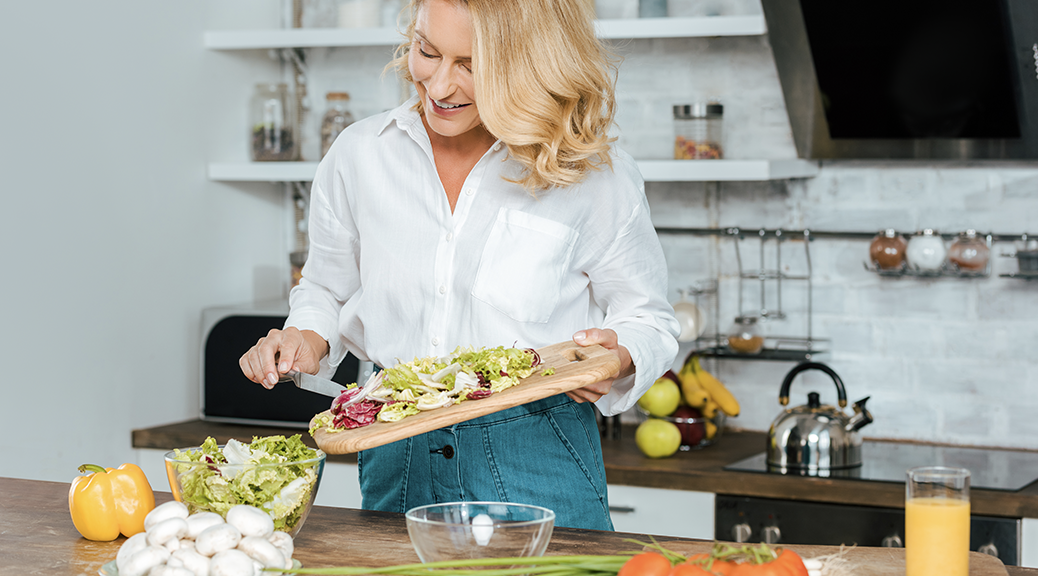
Anti-ageing from within
Natural health expert Elena Lena, founder of Lemon Well Med, explains how to nourish our skin from within to slow ageing.
The first noticeable sign of ageing are fine lines and tiny wrinkles, particularly at the outer corners of the eyes. As the cells turnover slows downs with age, the complexion becomes dull and loses its natural glow. Dark spots start to appear due to uneven pigmentation. The texture becomes thin and translucent, resulting in dark circles under the eyes. Pores start to be more visible and enlarged. The face, neck, and hands are the areas of the body to show the first signs of ageing.
Skin ageing factors are both internal and external. Intrinsic ageing is an unavoidable physiological process due to changes in cutaneous cells and in extracellular matrix components like collagen and elastin. The ability of stem cells to promote tissue regeneration becomes impaired and there is no longer skin renewal and repair ability. The physiological integrity can’t be restored. External environment factors are air pollution, smoking, poor nutrition, and sun exposure. They cause coarse wrinkles, loss of elasticity, and a rough texture of the skin.
The dietary effect
Poor diet and nutrient deficiencies are key factors accelerating skin ageing over time. Consuming lots of highly processed or sugary foods can cause spikes in blood sugar and insulin, which can trigger inflammation at the cellular level. This hidden inflammation can, in turn, speed up skin ageing through a process called glycation. A high-fat diet promotes skin oxidative stress and inflammation. On the other hand, inadequate consumption of fruit and vegetables can worsen skin conditions.
The role of water is also very important – lack of water can cause tissue dehydration and negatively affect the skin physiology. There is clinical evidence that dietary water affects the normal skin physiology. Correct water intake might positively impact on hydration and biomechanical behaviour of the skin, while dehydration exacerbates skin ageing. Studies show that drinking more than two litres of water per day significantly affects the skin physiology and promotes superficial and deep skin hydration.
An imbalanced and incomplete diet can lead to skin premature ageing and to inflammation. Therefore, it’s important to control eating habits and opt for antioxidant-rich foods that are essential to prevent oxidative stress and inflammation. I’m a fan of the Mediterranean diet, rich in fruit, vegetables, whole grains, fresh fatty fish, and olive oil. However, skin ageing is a long-term process, so both damage and improvements caused by diet are not visible in the short-term. Dietary interventions that can affect skin health are slow to occur. Certainly, this must not refrain from improving eating habits, rather it should be a trigger for adopting a healthier dietary regimen for a lifetime and from a young age.
Smoking is another detrimental factor, that can cause changes in skin thickness and pigmentation. Also, excessive sun exposure and tanning damage the skin cells, causing the appearance of wrinkles. Poor sleep quality and a stressful life are connected to premature ageing. Stress can trigger inflammatory responses in the body and lead to poor sleep, so they are strictly connected.
Check your nutrients
Micronutrients and macronutrients deficiencies can affect the process of skin ageing. Vitamin deficiencies are detrimental for the skin. Vitamins are correlated to the skin antioxidant capacity and its physiological functions. Consequently, a lack of vitamins leads to skin disorders and premature ageing. For example, vitamin C deficiency can cause skin fragility. Studies show that vitamin D also regulates ageing in many tissues, including skin.
Lack of polyphenols, abundant in fruit and vegetables, facilitates the ageing process. Polyphenols have obvious antioxidant and anti-inflammatory effects and can inhibit collagen degradation and increase its synthesis. Lipids and fats are also an important part of the skin. They have a barrier function, help repair damages, support moisture retention. Skin ageing is accompanied by a reduced fat content because of the skin cells’ ability to synthetise fat decreases. Dietary fat intake is correlated to the lipid composition of the skin tissues. Insufficient intake of lipids, like essential fatty acids, leads to skin issues.
Proteins, which form an important part of the body tissues, help repair and construct tissues and supply energy. So, an adequate protein intake can ensure the tissues renewal, skin included, while protein deficiency can affect skin health.
The beneficial effects of probiotics are widely reported. They can help slow internal and external skin ageing, because they improve skin hydration and gloss, help restore the normal skin PH, decrease oxidative stress, enhance skin barrier function, and mitigate the damage caused by exposure to sun. Probiotics also support the gut microbiome, which has an impact on ageing and influences skin disruption through the gut-skin axis. Cellular senescence is an ageing process associated with microbial imbalance. Liposomal vitamin C is extremely important for the skin, which contains high concentrations of this vitamin. It has well-known biological functions relevant to skin health, like stimulating collagen synthesis and assisting in antioxidant protection against UV-induced photodamage.
Liposomal curcumin is a powerful anti-inflammatory and has the ability to postpone skin senescence. It also protects against skin damage caused by ultraviolet radiation and boost collagen production. Liposomal omega 3 fatty acids help improve the skin barrier function and hydration, they increase skin elasticity, and have a photoprotective effect that increases the longer they are consumed. It seems that the effect disappears after few months of discontinuing the intake.